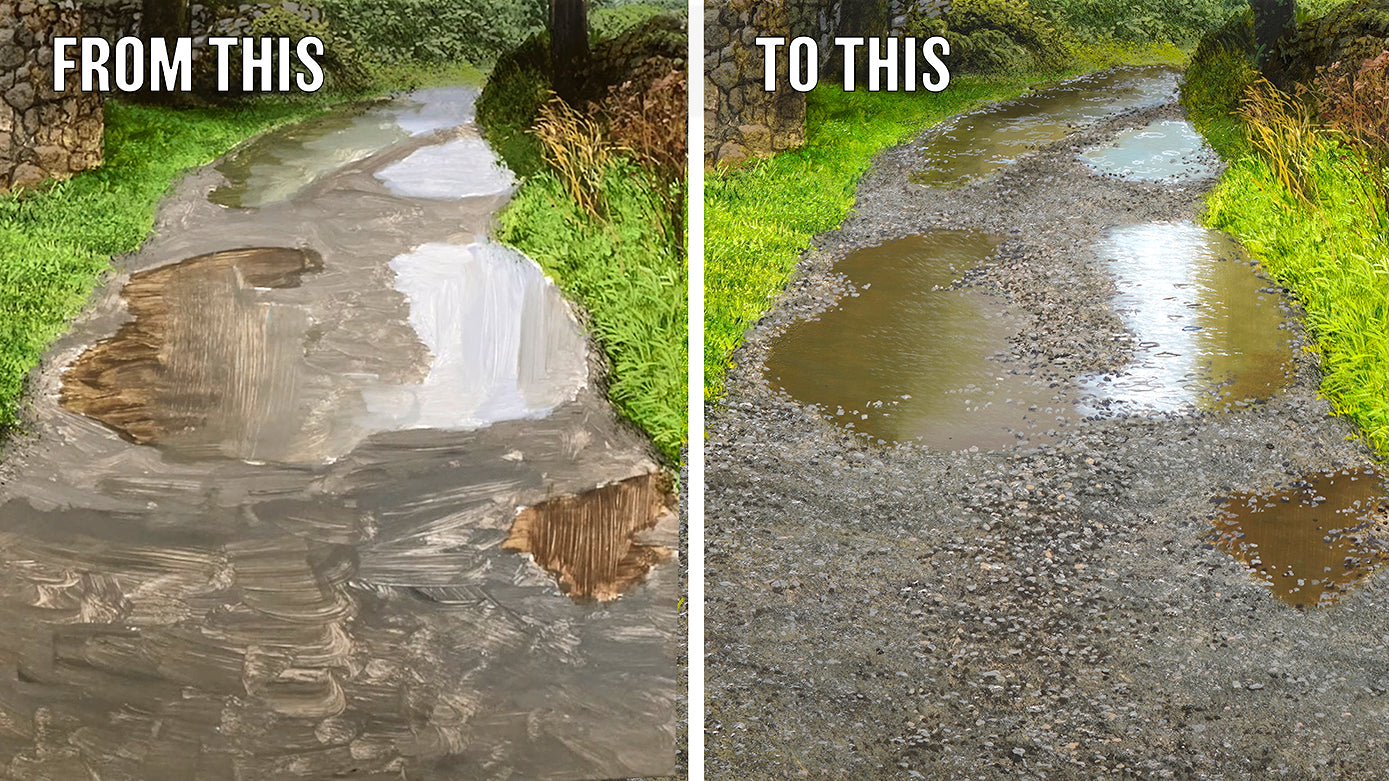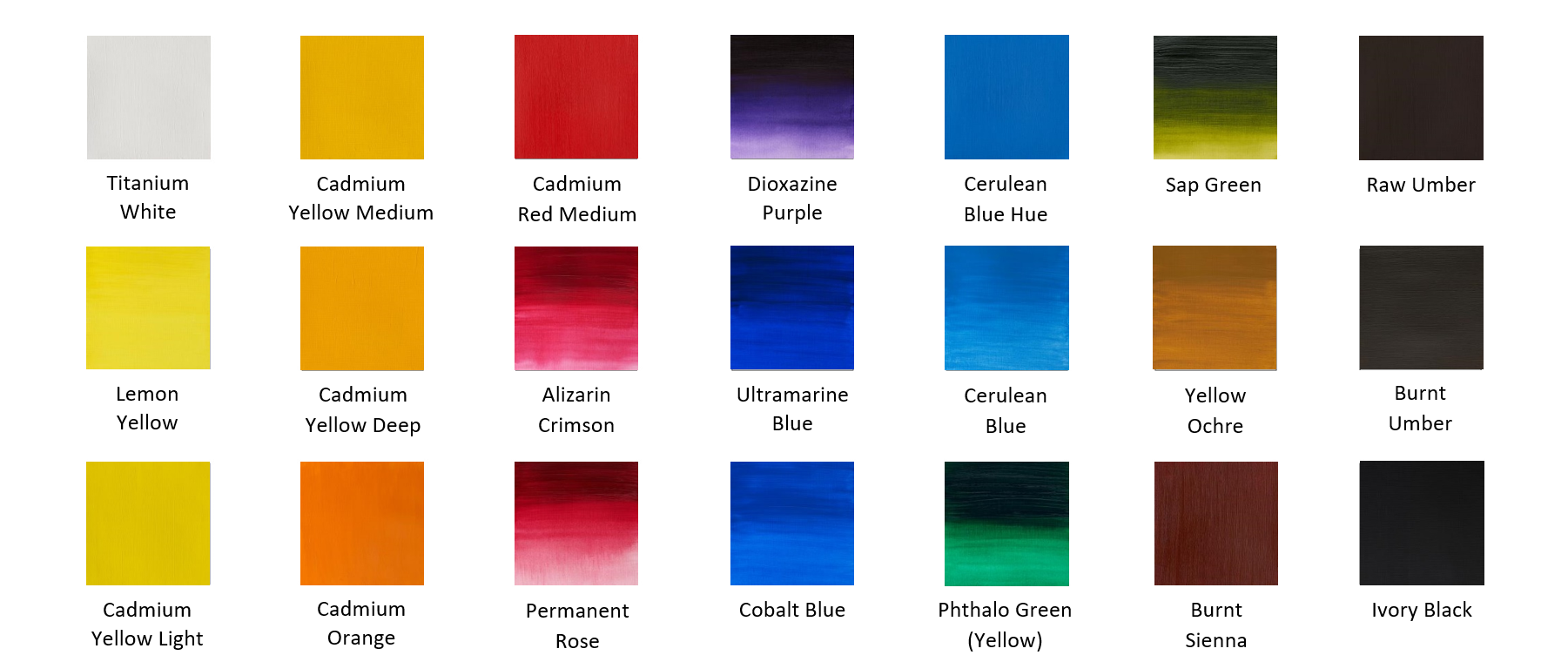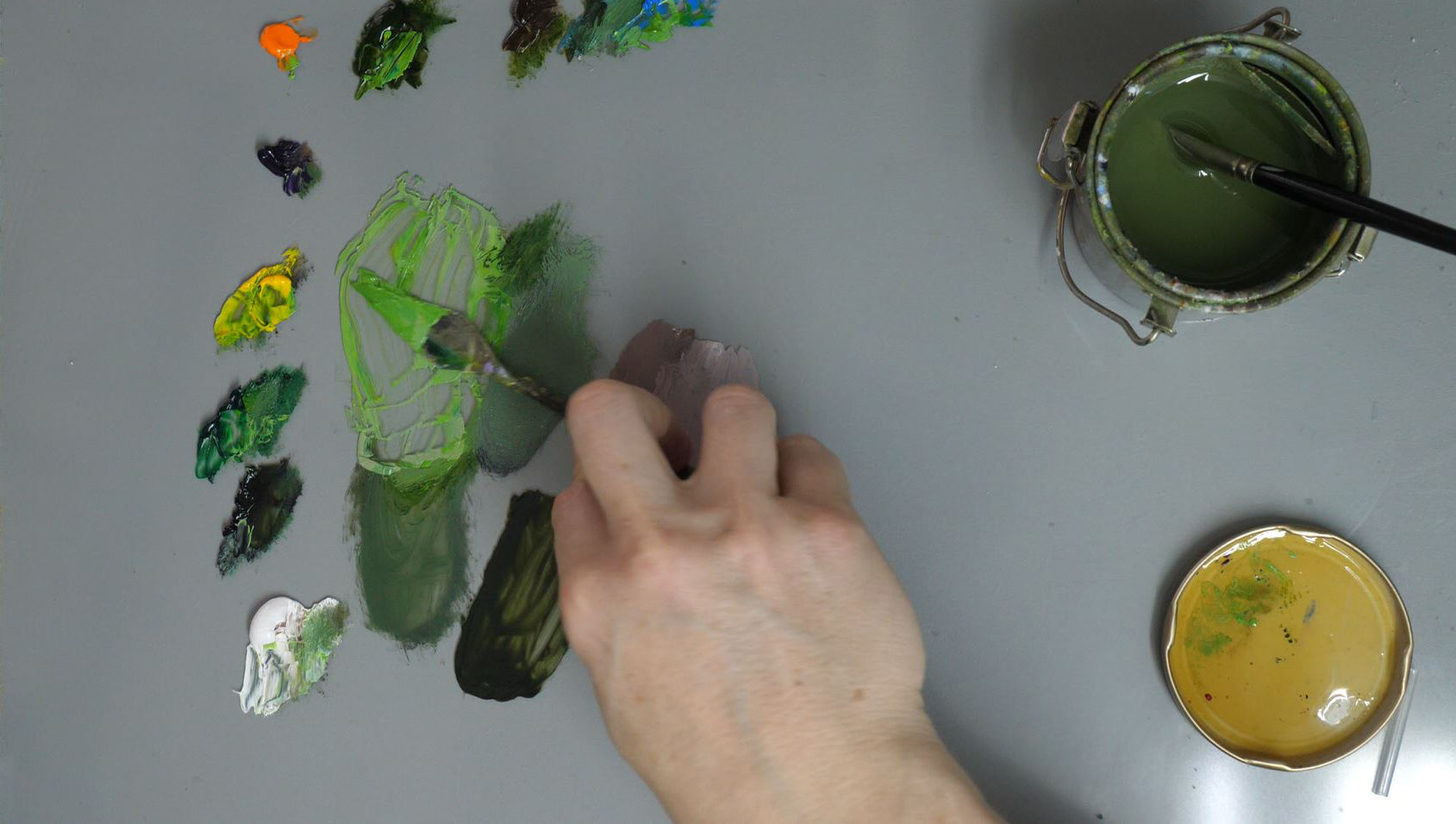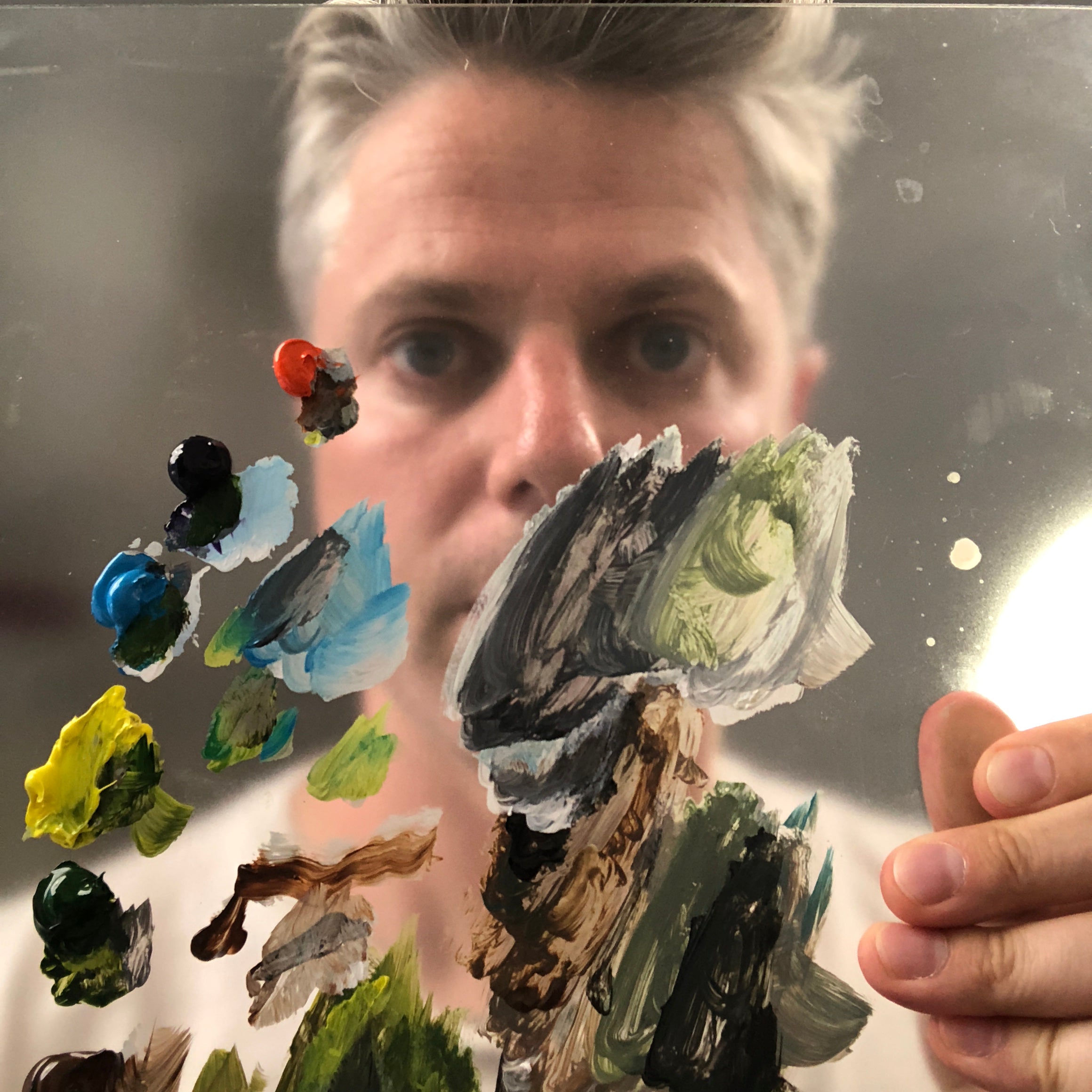
How to start an oil painting by blocking in
I always start an oil painting by blocking in, and this is for two main reasons:
- It ensures that the white surface that I’m painting on to is completely covered
- It makes it a lot easier to colour match to the reference photo with oil paints
- It makes painting the detail in oils in the next stages easier
As a professional artist, I’m really limited by time, so I block in using acrylic paints as they dry much faster than oils. In fact, I can usually paint the next layer in oils in around five minutes, whereas if I’d blocked in using oils, I’d have to wait one to three days until it was dry.
The blocking in process provides you with a rough guide for the rest of your oil painting. If you look at the subject matter (reference photo) and squint your eyes so it goes blurry, that’s the level of detail that you’re trying to achieve with blocking in.
This means that you do not need to be entirely accurate with colour matching to your reference image, as you’ll paint over it with more closely matching oil paints in the next layers. If you do find yourself a million miles away from the reference photo with the colours you used to block in, don’t panic, you can go straight over the top with another layer of acrylic paint in a few minutes.
I use a very limited palette for blocking in, which you can see below.
For lighter areas, I use a fair amount of water to thin the acrylic paint so that it becomes more like a wash and runs off the paintbrush easily. Don’t worry about the paint being so thin that you can see the pencil sketch underneath, you can easily give it another coat of acrylic paint if it’s required. For darker areas where I need better covering power, I use neat, un-thinned paint for the block in.
To start the blocking in process, I work from the furthest point away in the distance (usually the sky) and then pull forward to the foreground. I block in using middle tones, which allows me to paint darker oil colours on top, and then lighter oil colours on top of that. Try to stick to this method when painting with oils, as you’ll see a much better result.
Once the blocking in stage is complete, I leave the painting for around five minutes and start painting with oils.
My blocking in top tip
Don’t spend too much time blocking in, as you will not be able to see any of the acrylic once you apply the oils. On average, I roughly spend about 20 minutes blocking in a 12” x 12” painting.


